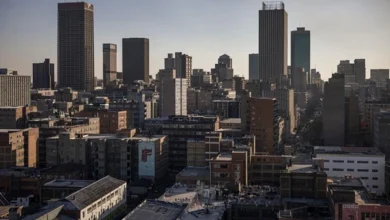Gabola church: where alcohol is used for baptizing and anointing
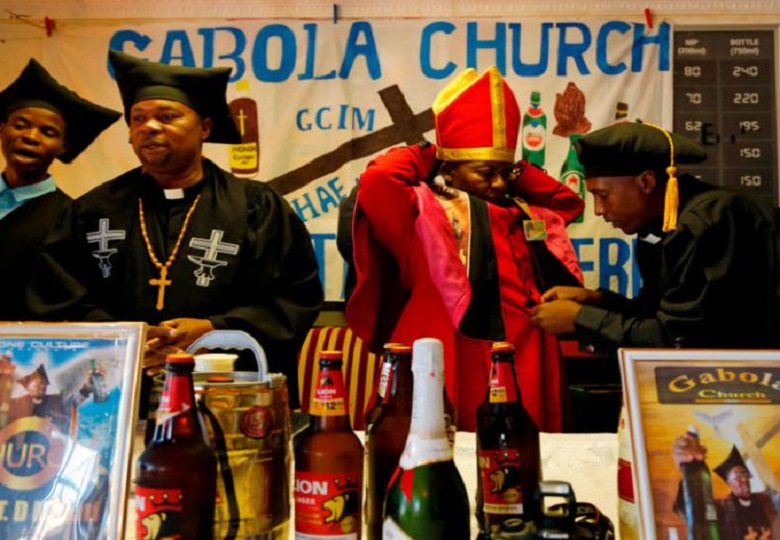
In Gabola church, the priest dressed in his bishop’s miter and red robe pours whiskey into his palm and anoints the congregation’s forehead with the alcohol. “Hallelujah!” – chants the congregation, moving in dance and sipping beer straight from the bottles. Yet, the “bar religion” loves themselves and helps young artists.
Such are the daily routines of Gabola Church in South Africa’s largest city, Johannesburg, which has opened its doors to drunks expelled from other churches. Since November 2017, services have been held in bars, and parishioners are allowed to consume alcohol. This fact has contributed to the popularity of Gabola Church. In the Tswana language, gabola means “to take a sip.”
“Gabola’s church was created to save rejected people who are considered sinners. We drink to liberation. We drink for the Holy Spirit to enter us,” says Bishop Tsietsi Makiti, founder of the self-proclaimed church.
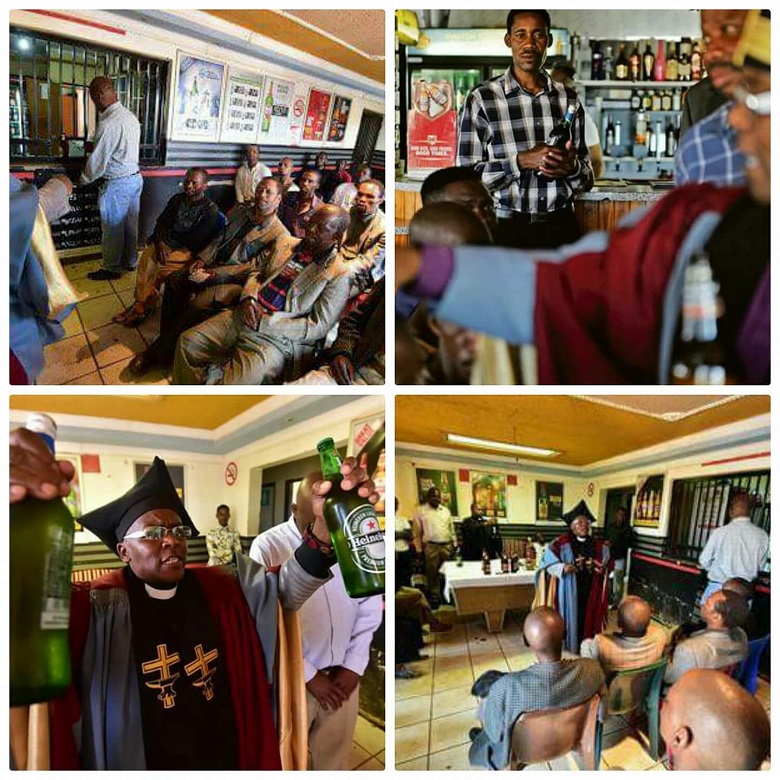
Tsietsi used to be a junior priest in the Old Apostolic Church, but then he quarreled with other church members and founded the Gabola Church. Makiti is not averse to drinking either: in photos from services, he almost always carries a glass or bottle, but he does not accept “alcoholic donations” and buys his own drinks, preferring whiskey as his drink of choice.
“There is nothing wrong with drinking; if a person is in trouble because of alcohol, the problem is with the person, not the alcohol,” the official community page notes. Based on comments from Gabola Church attendees, one can drink anything at the bar, from homemade brandy to expensive whiskeys.
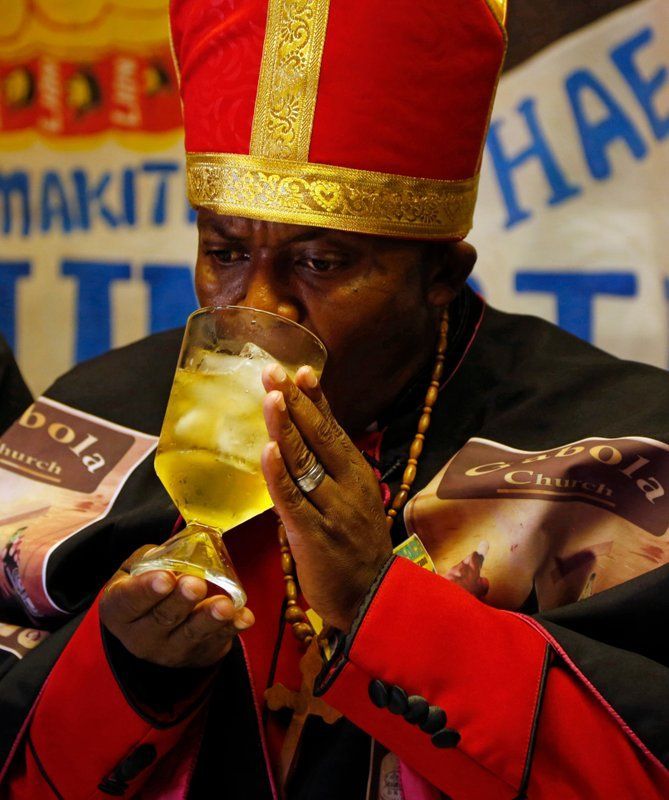
Many South Africans criticize Makiti’s work and refer to his flock as “visitors to the establishment”. “Gabola has nothing to do with the Word of God. Its meetings are not church services,” said Archbishop Modiri Patrick Shole, director of The South African Council of Churches (SACC).
“They consecrate the Bible to the activity of promoting taverns and drinking. It’s blasphemy. It is heresy, and it desecrates church doctrine.” According to the archbishop, it is high time for the authorities to close this pseudo-church, if only for the fact that it violates the municipal rule against placing church institutions next to drinking establishments.
South Africa is home to about 56 million people, and 80% are Christians, predominantly Catholic and Protestant. There are also small, independent churches that cultivate intricate rituals such as tame snakes. In that year, one of the pastors of such a small church was convicted of physical abuse for sprinkling popular repellent in the faces of parishioners to “drive out evil spirits.” Another “missionary” in Pretoria distributed rat poison to his flock.
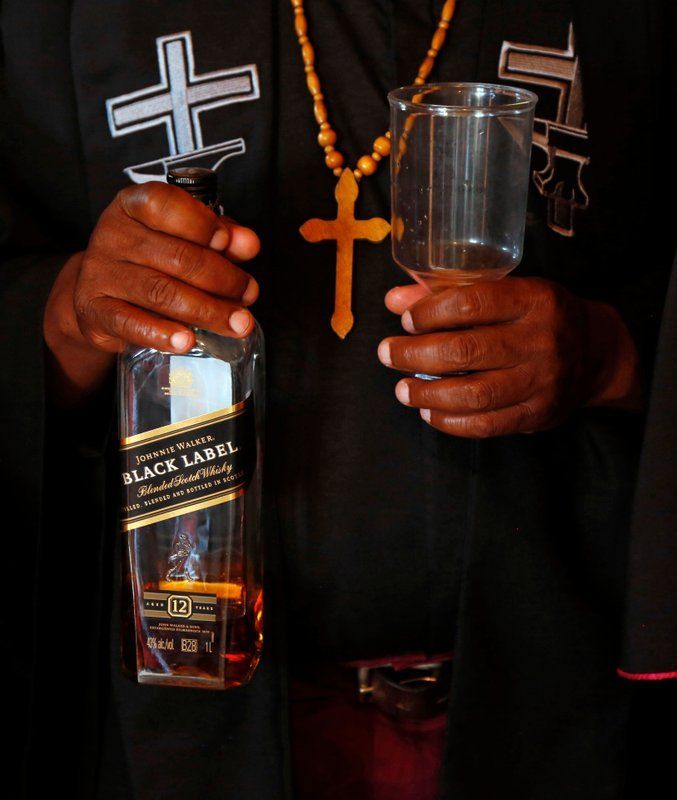
However, condemnation by other Christian organizations does not affect the attendance of the Gabola church: several dozen people always attend the service and are not confused by the fact that the altar is often a pool table decorated with vintage beer and stronger alcohol, and the ministers consecrate not water but, for example, beer in kegs and, accordingly, baptize converts with heady liquor.
“There is no fighting, no arguing. We have only love,” is how Nigel Lehasa presents himself as a “professor” at Gabola Church.
Supporters of the “bar religion” have an answer to their critics: Gabola Church not only preaches mercy to drunkards in a peculiar way but also holds services for homeless kids, organizes backyard soccer tournaments, and helps young artists.

